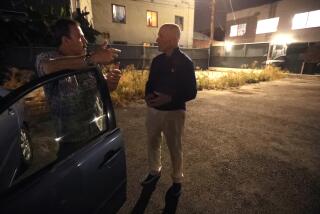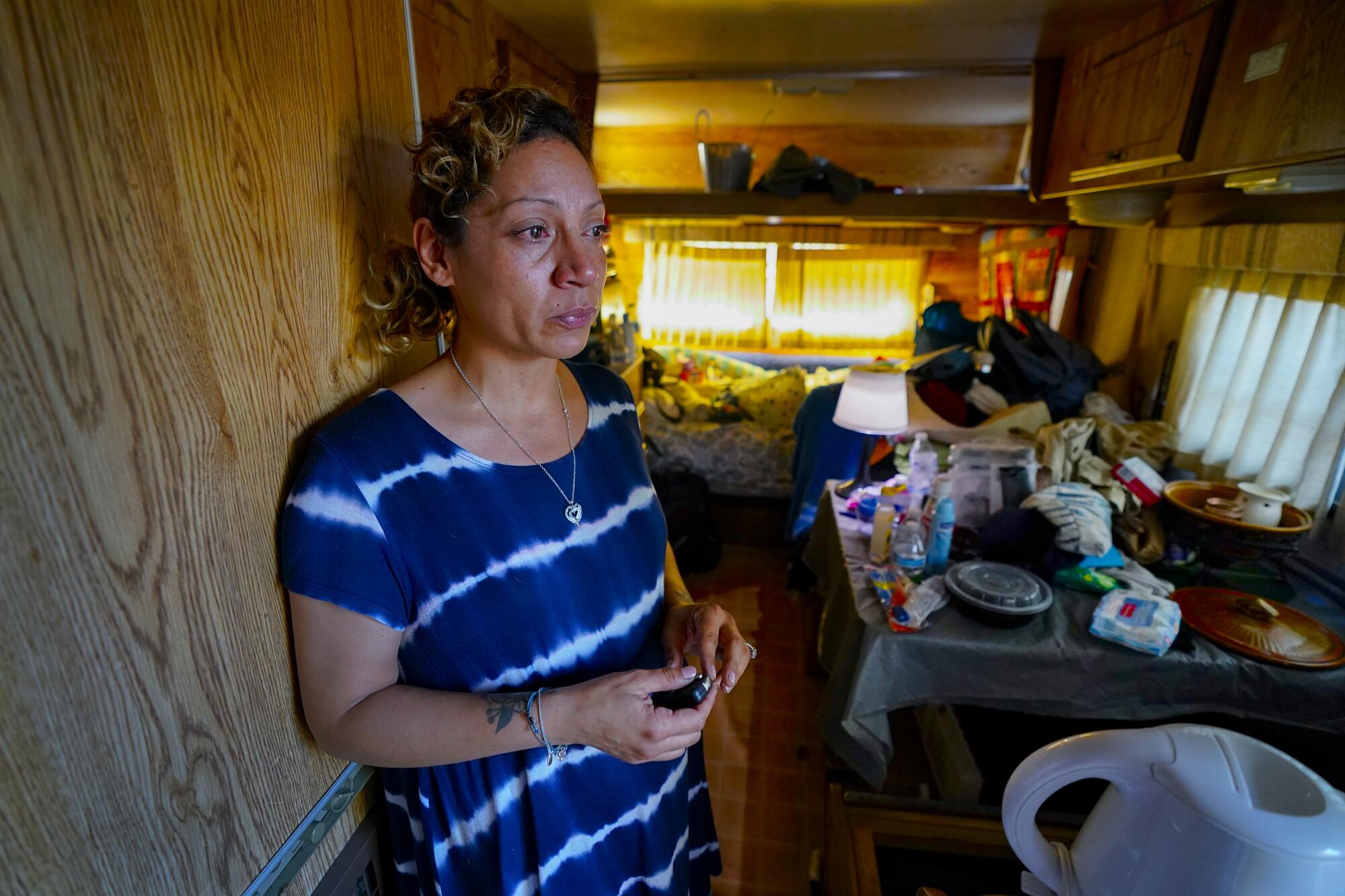
SAN DIEGO — Roxana Zelaya knew she was pushing her luck.
“I was getting little notes to move my vehicle,” Zelaya, 41, said about the warnings she was finding on the windshield of her SUV that was attached to a trailer where she was sleeping.
For about a month, Zelaya had been parking her trailer near a San Diego church where the nonprofit Dreams for Change operates a “safe parking lot” for homeless people. She had parked her car in the lot, but oversize vehicles such as her trailer are not allowed.
Zelaya then learned she had another option. A few miles to the east, Dreams for Change operates a lot in Encanto where cars and oversize vehicles can stay 24 hours a day.
“The staff is so helpful,” she said about life in the new lot, where she has been since March. “I’ve gone to other places, and it’s been a nightmare.”
Zelaya is one of more than 700 San Diegans who live in vehicles, according to an annual countywide survey. Many live in RVs, and only two safe parking lots in the county allow those vehicles.
Dreams for Change opened San Diego’s first safe parking lot to allow RVs and oversize vehicles in 2018. The lot has relieved Zelaya of the stress of parking her trailer on the street illegally and risk it being towed or ticketed, but she admits the situation isn’t ideal because she has to leave the site for 10 hours each day.
“You have to be out every morning,” she said. “You really have to utilize your time management, and it’s been difficult. I have to figure out where to go pee, where to eat.”
Dreams for Change Chief Executive Teresa Smith said the rule was imposed after problems arose when she opened the lot.
“With RVs, we were hearing, ‘Why should I leave? I just a need a place to park my RV, and now I have it,’” she said. “I’d say, no, this is temporary. This isn’t an RV camp.”
Smith set down a new rule for her guests: Your vehicles can stay during the day, but you have to leave.
The rule relieves people of the burden of having to find a new place to park every day — an especially challenging task for people with oversized gas-guzzling vehicles — but also nudges them to work at long-term solutions to their homelessness during the day, Smith said.
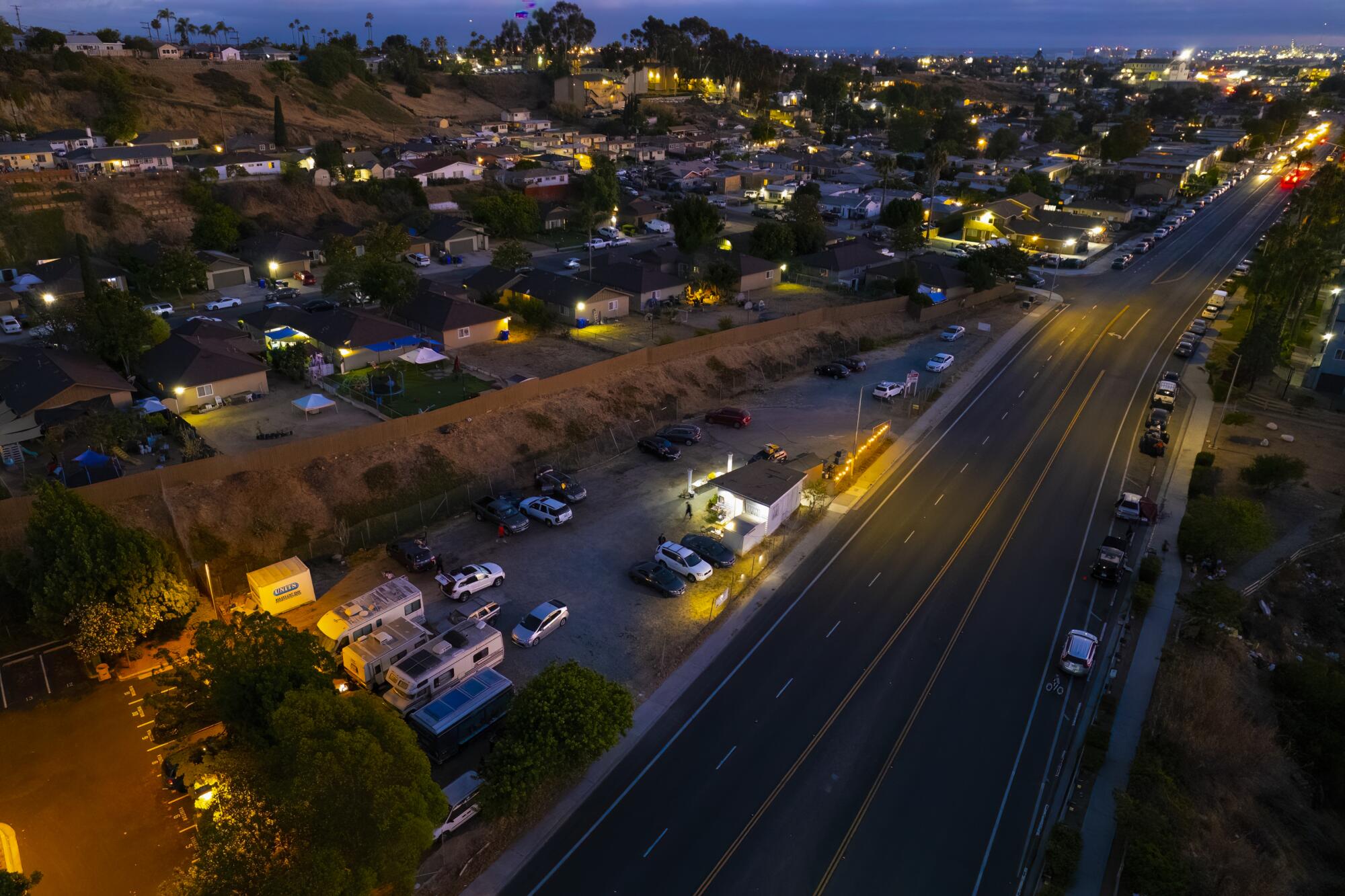
In a few months, the first city-funded 24/7 safe parking lot for cars and RVs will begin operating in Mission Valley. The lot, operated by Jewish Family Service, opened in 2019 and as of now requires clients to drive their vehicles off the site every day at 7 a.m. and return after 6 p.m.
Many RV dwellers have stayed away from the lot because of the rule, instead taking a chance on being ticketed or towed on city streets.
In contrast, Smith said there has always been a waiting list for people who want to use the Encanto site for RVs. The most RVs that have ever been on the small site is six, she said, and Smith estimates 25 or 30 have used the lot since its opening four years ago.
There are no time limits for how long people can stay on the site, but Smith said they do have to find another place to temporarily park every 28 days to avoid gaining tenant rights, which would make it difficult to evict someone.
A two-year study by UC San Diego found homeless people who live in vehicles said they strongly favor a lot that would be open 24 hours. The report found that besides making life easier for clients, the lot gave people more time in the day to spend with caseworkers.
The San Diego City Council agreed to fund the extra hours last week.
When the Encanto site opened, RVs and their owners were allowed to stay on the property throughout the day, but people who slept in cars had to drive off the lot every morning, which caused some tension. Now everyone must be off the site from 8 a.m. to 6 p.m., and Smith said the rule has had other benefits.
“We want people to be productive here in the daytime and not sit around,” she said. “We’ve seen that people’s mental health starts to sink when they just sit around.”
Jewish Family Service Chief of Staff Chris Olsen said Wednesday that rules about how to run the 86-space Mission Valley lot after it converts to 24 hours have not been finalized, and he expects the new hours to begin by the end of summer.
Caseworkers at the Encanto lot are on site after 6 p.m. to help people find resources, and Smith said people are encouraged to spend the hours during the day accessing resources or seeking employment. Seniors are encouraged to go to senior centers or other places to connect with the community rather than isolate in their vehicles.
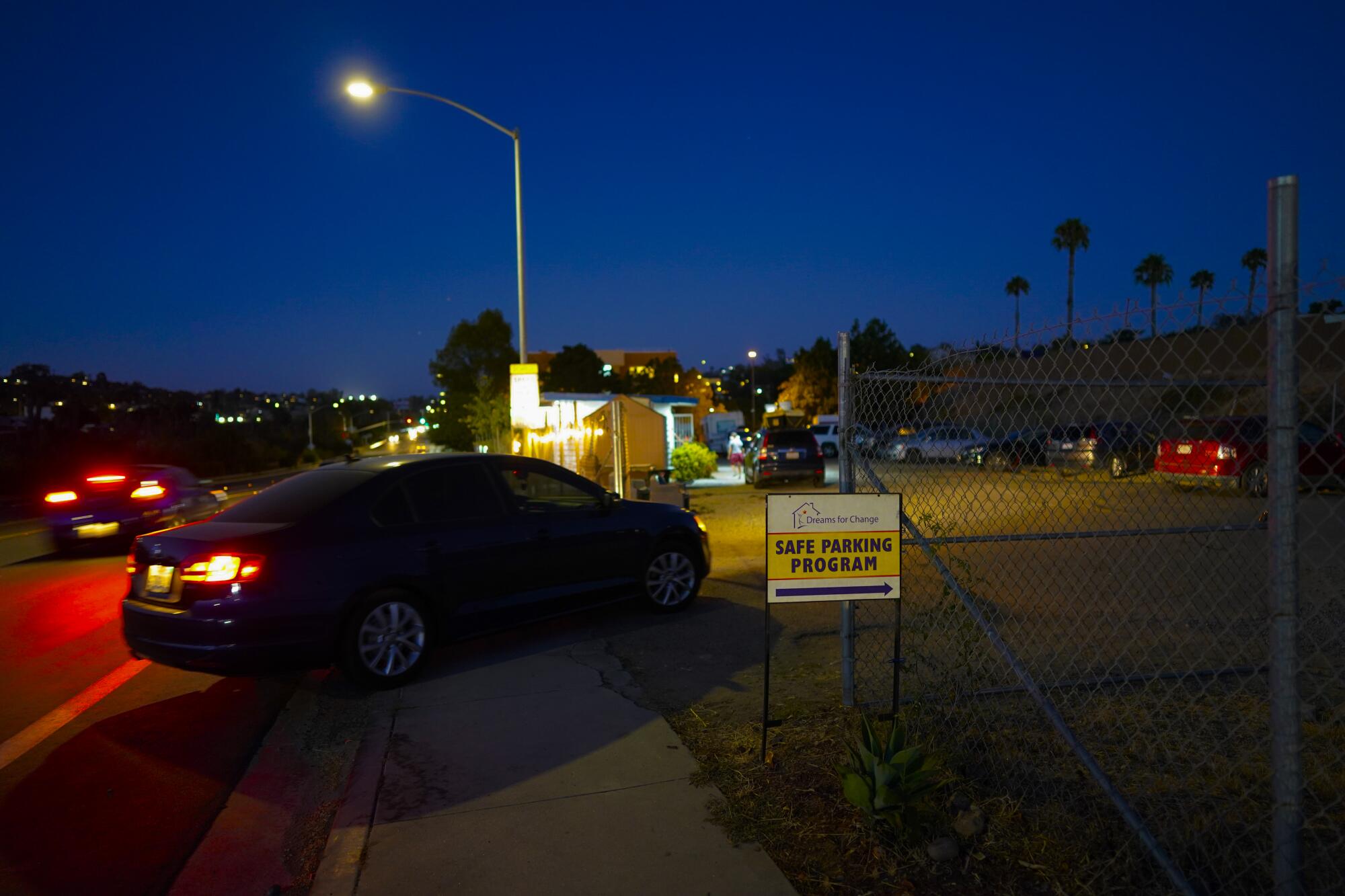
In another lesson learned at the site, Smith said she and staff members developed ways to detect whether someone who approaches the lot is homeless and living out of their vehicle or is just looking for a free place to park an RV.
“We’ve just got to ask the right questions,” she said. “Once you start asking about housing and employment and public benefits and that kind of stuff, it starts to become really clear.”
Smith said they usually receive a suspicious number of inquiries around this time of year.
“We get a ton of calls around Comic-Con,” she said about the international event that often has visitors scrambling to find overnight accommodations. “People are looking for ‘urban camping’ and a place to park and sleep in their cars.”
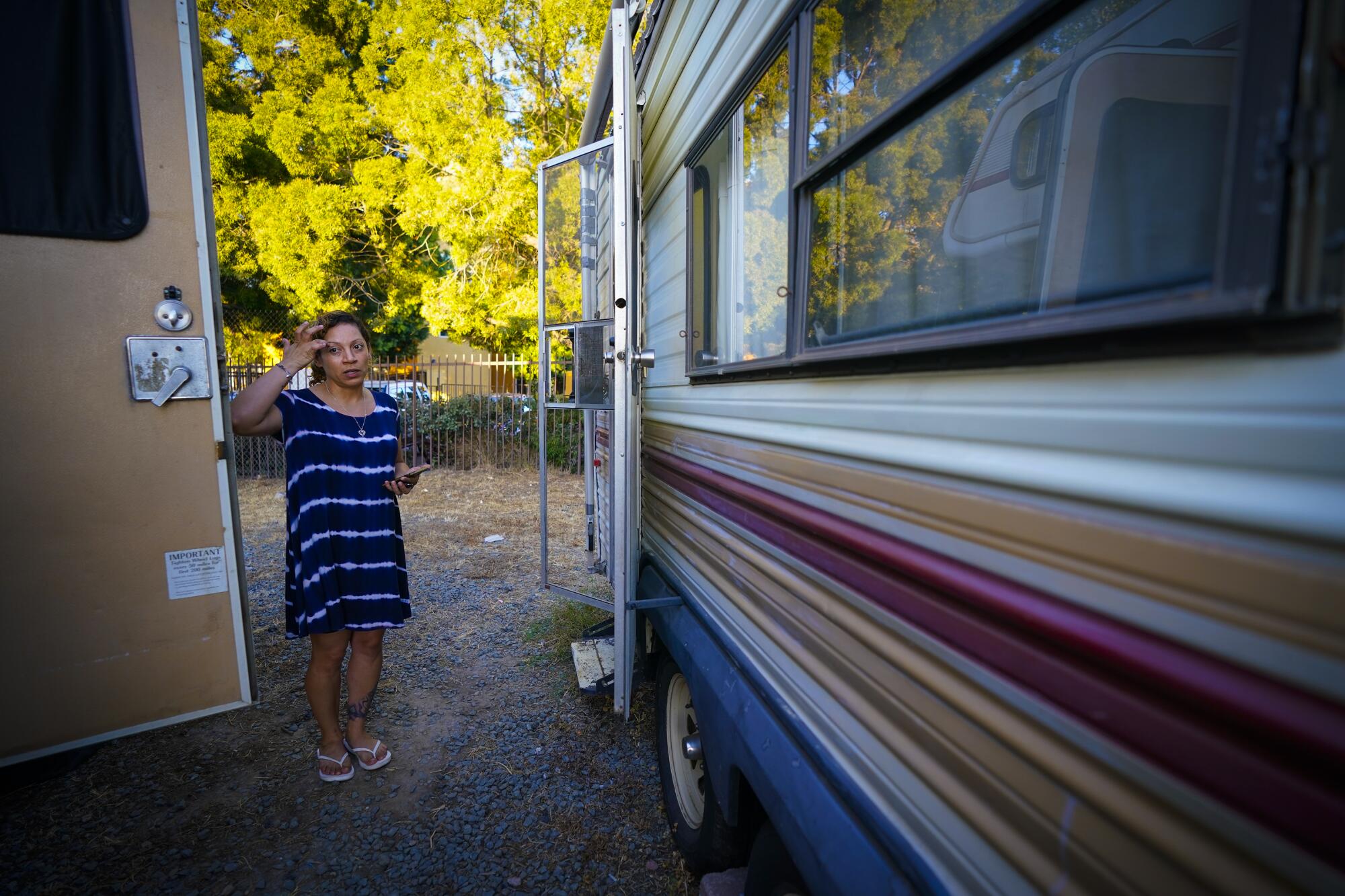
Zelaya lives in an 18-foot Layton Funtime trailer by Skyline she bought for $4,500 with unemployment money she received after losing her job as a loan processor during the pandemic.
“I’ve worked hard all my life,” she said. “I’m a hard worker. They say there’s help out there, but I’m not getting it.”
Zelaya said she lost her job at the same time she was evicted. She had been living in a tool shed that had been converted into a rental unit without the required permits, which was discovered after San Diego Gas & Electric was called to investigate a gas leak.
Her landlord received a court order to pay her $6,000 for the illegal eviction, she said, but she went through that money staying in hotels when she couldn’t find another rental unit.
She tried sleeping in her car for a while, but it was too painful because of her sciatica. She bought the trailer and an SUV to haul it, and had risked getting ticketed for parking on the street for about a month before moving into the safe parking lot.
She tried working for a temporary job agency, but said she’s not getting assignments because of her frequent doctor’s appointments. She also suspects the company wants somebody younger who can work faster.
“I don’t know what to do, actually,” she said, adding that she has no family in town or anyone else who can help her.
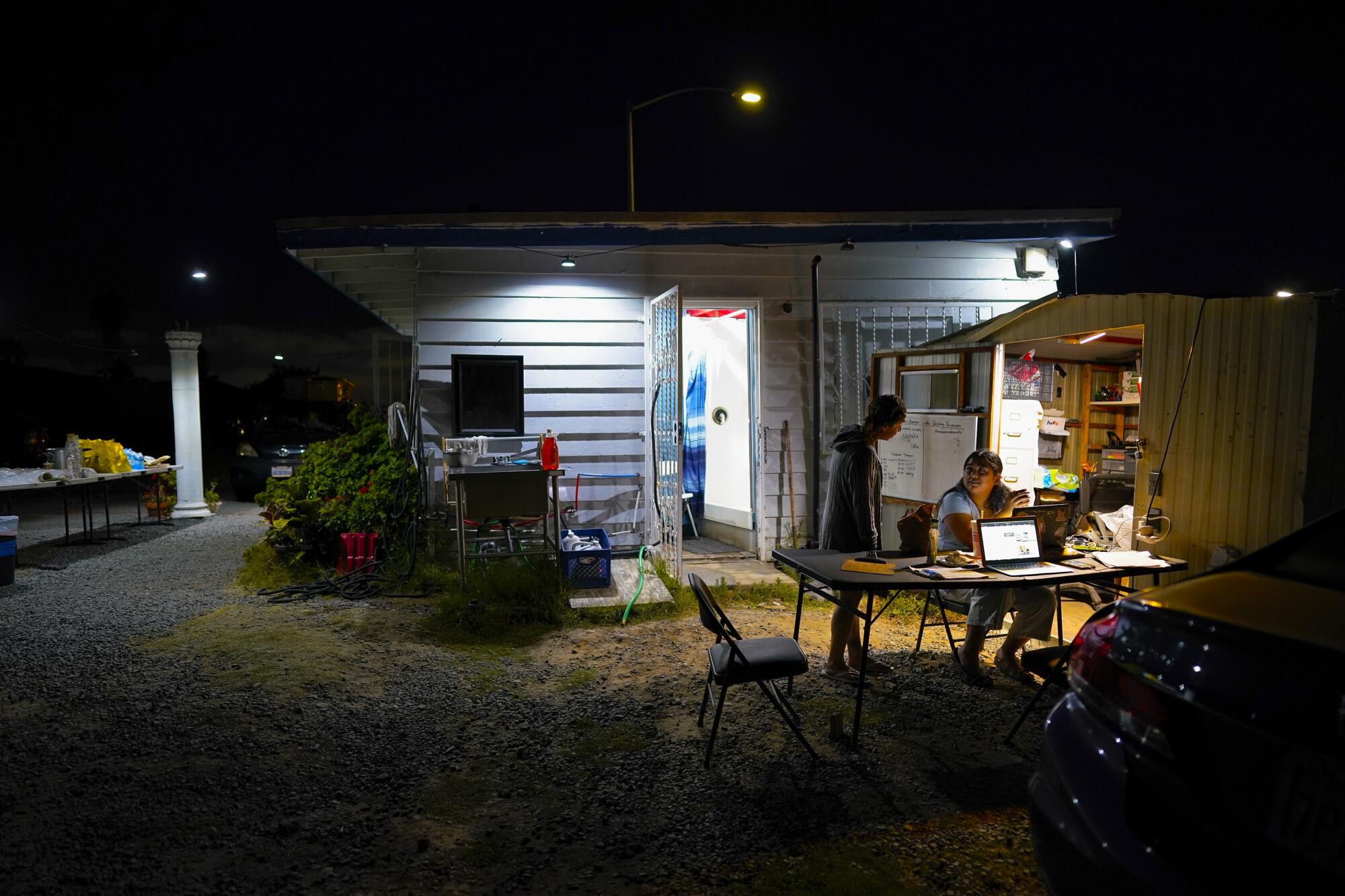
Zelaya is hopeful her health will improve and she’ll be able to find work again, and said she has signed up for real estate classes to resume her career.
Besides the Encanto lot, Dreams for Change operates another cars-only lot at a church, where people must drive out by 6 a.m. Smith said there are plans to open a third lot in partnership with San Diego County on unincorporated land between El Cajon and Santee on July 18.
More to Read
Sign up for Essential California
The most important California stories and recommendations in your inbox every morning.
You may occasionally receive promotional content from the Los Angeles Times.


